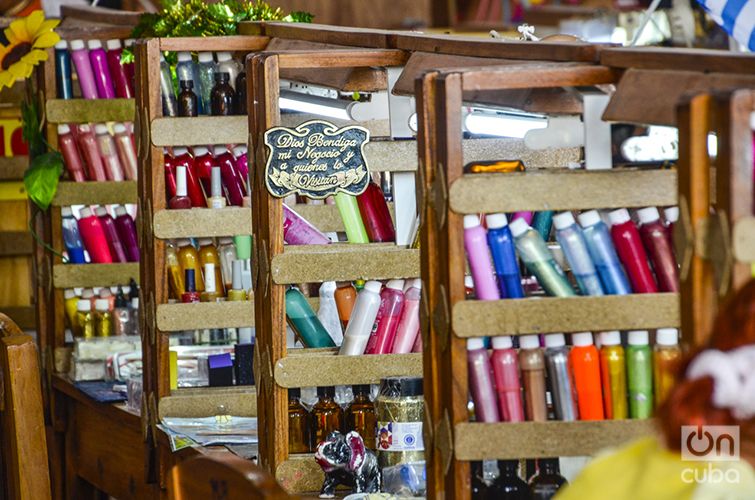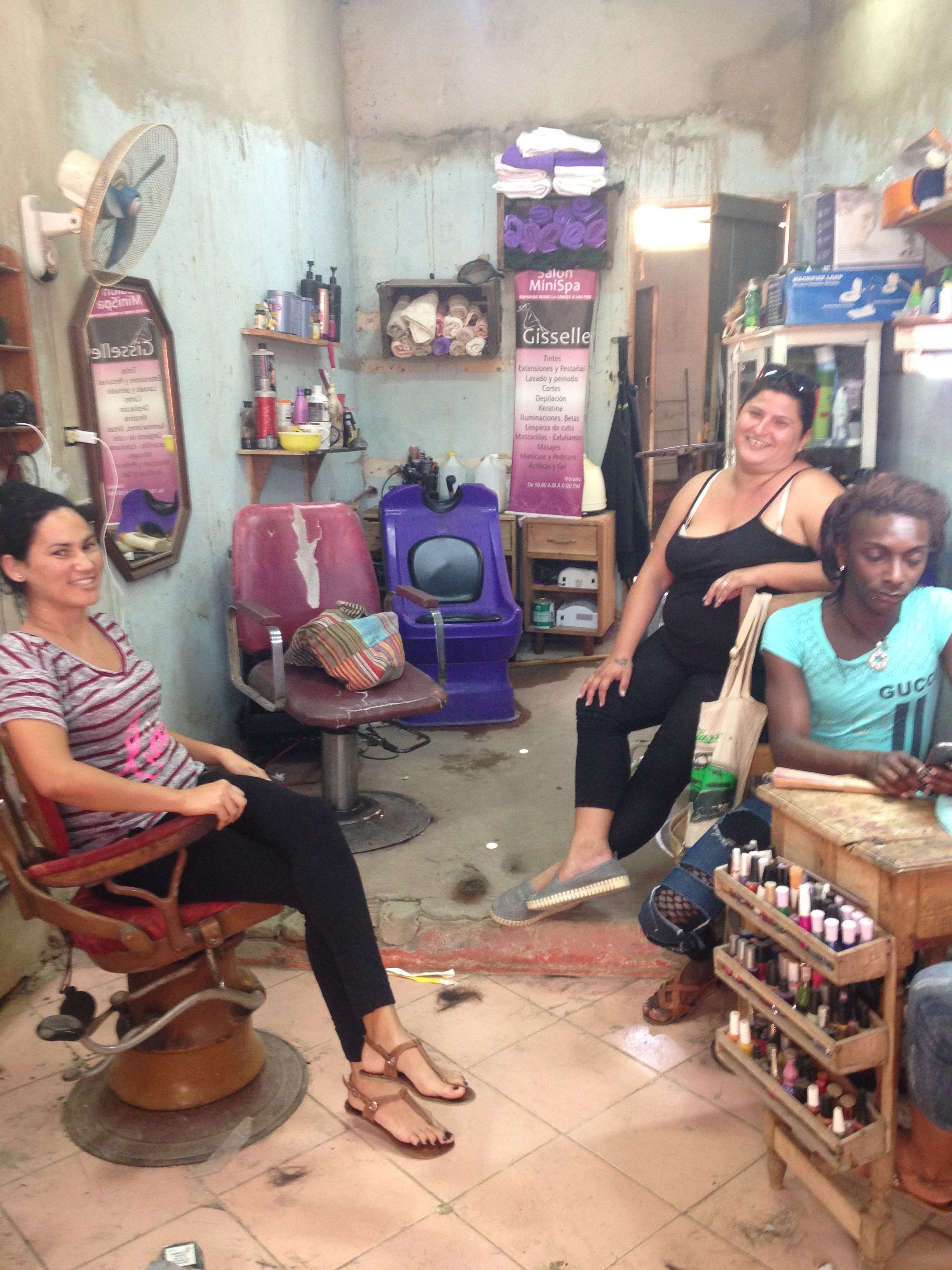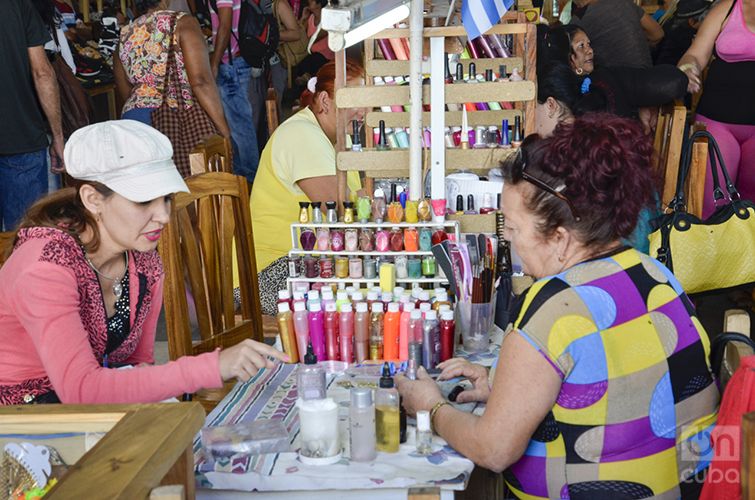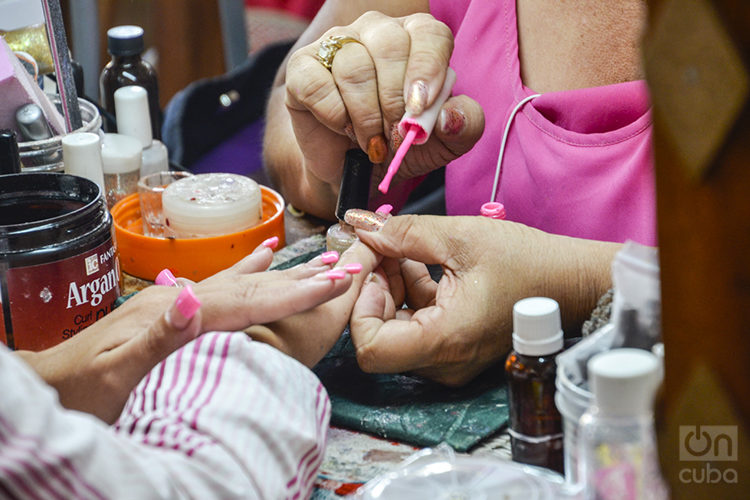Women who want beauty treatments at Salon Giselle must step carefully over piles of rubble and corrugated metal.
Despite the plaster dust, peeling paint, and mismatched chairs, business at Salon Giselle is booming. Feminine chatter and camaraderie flows as in any other beauty parlor.
But this salon is not just about hair and nails. In-home beauty salons have given many Cuban women an opportunity to participate in the new dynamism of small business here. They allow female owners with little formal training to turn a girlhood hobby into an empowering economic venture.
A few bottles of nail polish, a padded chair against a sink, the right license and some business savvy have landed many women their own businesses—something that would have been hard to imagine just a few years ago.

Independent businesses were banned as antithetical to the spirit of the revolution in the 1960s. They remained illegal until 1993, when the fall of the Soviet Union, Cuba’s principal benefactor, sent the country into a sharp economic downturn. In response, the government loosened restrictions on private enterprise. Beauty salons were among the first new businesses that sprouted up.
Part of their success was due to the poor quality of state-owned salons. “You would go to a hair salon and the hair dryer wouldn’t work, or there wouldn’t be hair dye or products,” said Isabel Rivalta, a spokeswoman at the Instituto Cubano de Amistad con los Pueblos, an NGO that establishes Cuban solidarity groups in foreign countries. “The state had serious problems trying to guarantee everything in society.”
Rivalta said that education and health care are the government’s main priorities, so it is willing to allow private citizens to take over some forms of enterprise. The state will continue to operate beauty salons, she said, and as long as both state and private salons provide good service, both will continue to coexist.
The owner of Salon Giselle, a friendly woman named Yisel, said she hopes construction will be finished soon. Her salon has been open for nearly two years and has four full-time employees. Like all private entrepreneurs in Cuba, they hold government-issued licenses that allow them to work independently.
One of Yisel’s main problems is finding enough quality beauty products at reasonable prices. She buys what she can from official state stores, but their supply is limited.
“The rest you buy from private vendors,” she said. “You have to buy everything at market price, because wholesale doesn’t exist in Cuba yet.”
Throughout the day, vendors—many of them women—stop at places like Salon Giselle to offer products for sale. Yisel and her employees review all their offerings, which range from underwear to hair ties. At some point in the future, Yisel hopes, the network of private salons will become organized enough to provide stylists with bulk quantities of beauty products and more durable tools.
Mentorship is also a key part of Yisel’s business model. Two of her employees are just 18. Both recently graduated from university beauty courses, but lacked hands-on training due to the declining number of state establishments where they could practice.

Once construction in her salon is finished, Yisel plans to paint the walls, add hot water to the hair washing station, and most of all, find matching towels — a rare luxury. But the near-total renovation takes time, money, and hard work.
This scrimping and saving is nowhere to be found, however, at Chic, another beauty parlor on the other side of Trinidad. The owner, Karelia, married a Canadian tourist and lived in Canada for seven years. She decided to return to her homeland and open a salon as an income source. Her husband bankrolls the venture.
A slight but gregarious woman wearing tight, bright clothes and hot pink lipstick, Karelia laughs and sneezes between drags on her cigarette.
“I got this place because I married a tourist,” she said. “Here, no Cuban can buy anything.”
Karelia travels regularly to Canada and brings beauty supplies home after every trip. Her salon is in her family’s former garage. She employs four stylists and gives every customer her homemade business card.
Her success, however, hasn’t made her forget her roots. She charges Cubans less than tourists. Cuban customers don’t bring in enough money, she explained, while foreign customers allow her employees to make better salaries.
“It’s only fair,” she explained.

Forty miles from here, in the provincial capital of Santa Clara, a 27-year-old dancer named Yaimara, who paints nails on the side, hopes to open a beauty salon after finishing her stage career.
After Yaimara accumulated a handful of customers in her neighborhood, her family spent a hefty $40 to buy her an electric tool to apply acrylic nails. She paints customers’ nails in her own tiny bedroom. They sit on her chair as she spreads supplies on her comforter.
She applies the nail polish in generous, dripping strokes, using a rudimentary technique. Later she hopes to take classes that will give her more formal education in hair and skin care.
“I want to start a business and have a hair salon,” Yaimara said confidently. “Dance is for now, and I love it, but you have to dedicate yourself to other things, too.”
It takes a considerable amount of money to open up a beauty salon—or any business—in a country where most people earn salaries around $20 per month. Many Cuban women, however, want to follow the path blazed by entrepreneurs like Yisel, whose salon in Trinidad is starting to boom. They understand that success requires sacrifice.
“I don’t go out,” Yisel said. “I don’t shop for shoes or clothes. I just save for my business.”










